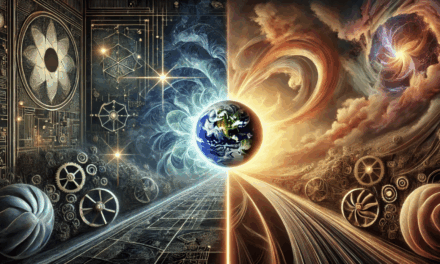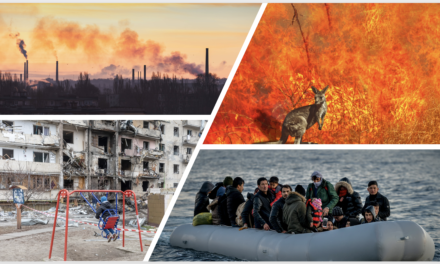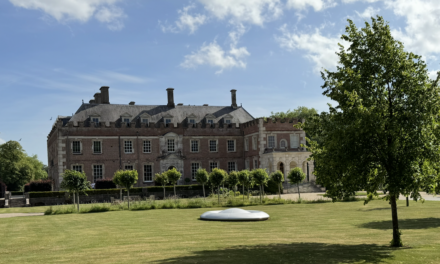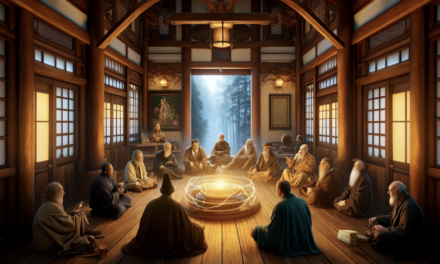In the old story of the blind men and the elephant, each man touches only a part—and mistakes the part for the whole. But what happens when the elephant begins to stir?
In every discipline, science sharpens its tools. But if we step back, the totality of what science reveals begins to resemble not a machine—but a story. Not a static picture—but a movement. A dance.
The Pursuit of Mastery: A Double-Edged Legacy
From the earliest civilisations to modernity, humanity has pursued mastery: over land, over bodies, over nature, over one another. This drive brought agriculture, cities, longer lives (for most), greater comfort (for some), philosophy, science—and empires, immiseration (for many), extractivism, slavery, and ecological destruction.
Mastery has shaped our stories: the hero’s conquest, the kingdom’s rise, the empire’s expansion. It has also fed our illusions: that progress is linear, that knowledge guarantees control, that success justifies harm.
Science as Mirror and Revelation
When science arose from this cultural compost, it carried both the seeds of insight and the residue of conquest. And yet, by its own methods, science now unsettles the very worldview it once supported.
Across fields—from quantum entanglement to climate systems, from neuroscience to ecology—the message is increasingly clear: we are not separate, we are not in control, we are not exempt. We are participants in a vast, entangled web of becoming.
The View from the Whole
The most radical shift is not any single finding, but the pattern that emerges when we look across the disciplines. Energy flow, feedback, emergence, interdependence—science is drawing a portrait not of mechanism, but of relationship. Not of certainty, but of complexity. Not of dominion, but of participation.
A Moment of Inflexion
And so we arrive at a threshold. The stories we told ourselves about mastery no longer match what we now know. But the temptation to cling to them remains strong—especially when they are embedded in our institutions, economies, and identities.
Science, paradoxically, now invites us to humility. To shift from exploitation to relationship. From extraction to reciprocity. From knowing as owning, to knowing as belonging.
From Knowledge to Wisdom
This is the invitation science now extends—not to discard its gifts, but to place them in service of a deeper wisdom. A wisdom that recognises our interdependence, our limits, and our potential.
This is not the end of knowledge, but the beginning of responsibility. Not the end of progress, but its transformation.
Perhaps the deepest truth science is showing us now is not about things, but about patterns. Not about control, but relationship. Not about certainty, but response-ability.
This is the moment. A turning. A choice.
Shall we keep telling our old stories of mastery? Or shall we begin to listen—to the cosmos, to the Earth, to each other—and write a new one?
(With pattern-spotting assistance from Aiden Cinnamon Tea)






